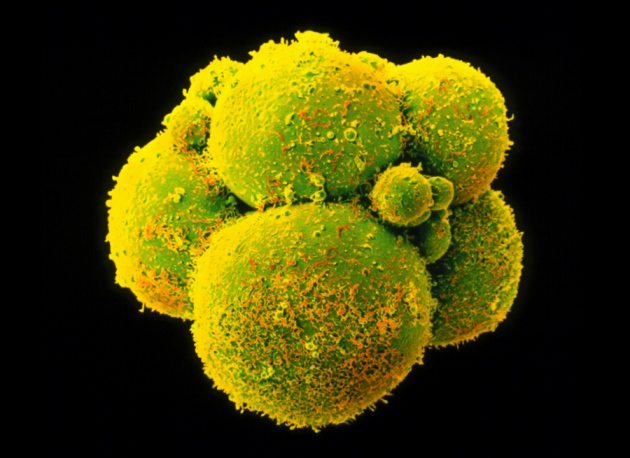Chinese Scientists Edit Embryonic Human Genome
Ashley Allen / 10 years ago

A group of Chinese scientists have become the first to edit the genetic code in a human embryo. The study, which aimed to remove the gene responsible for the potentially fatal blood disorder β-thalassaemia, rewrote the genetic material – using a technique known as CRISPR/Cas9 – of ‘non-viable’ embryos that were incapable of producing life, with the scientists recognising the ethical implications of editing a human life prior to its birth.
The study, the results of which were published in online journal Protein & Cell, was led by Junjiu Huang, a gene-function researcher at the Sun Yat-sen University, Guangzhou. Huang and his team injected 86 embryos with the CRISPR/Cas9 system and waited 48 hours for its molecules to react. 71 embyros survived the process, with each having grown by eight cells. 54 of those cells were genetically tested, of which 28 had successfully had their DNA rewritten to edit the HBB gene, responsible for β-thalassaemia.
“If you want to do it in normal embryos, you need to be close to 100%,” Huang said. “That’s why we stopped. We still think it’s too immature.”
George Daley, a stem-cell biologist at the Boston, Massachusetts Harvard Medical School, said of the study, “I believe this is the first report of CRISPR/Cas9 applied to human pre-implantation embryos and as such the study is a landmark, as well as a cautionary tale. Their study should be a stern warning to any practitioner who thinks the technology is ready for testing to eradicate disease genes.”
The study was not without controversy, with science journal Nature and Science rejecting the paper due to ethical objections. Despite this, it is reported that four other studies into gene editing are underway in China.
Thank you nature for providing us with this information.



















